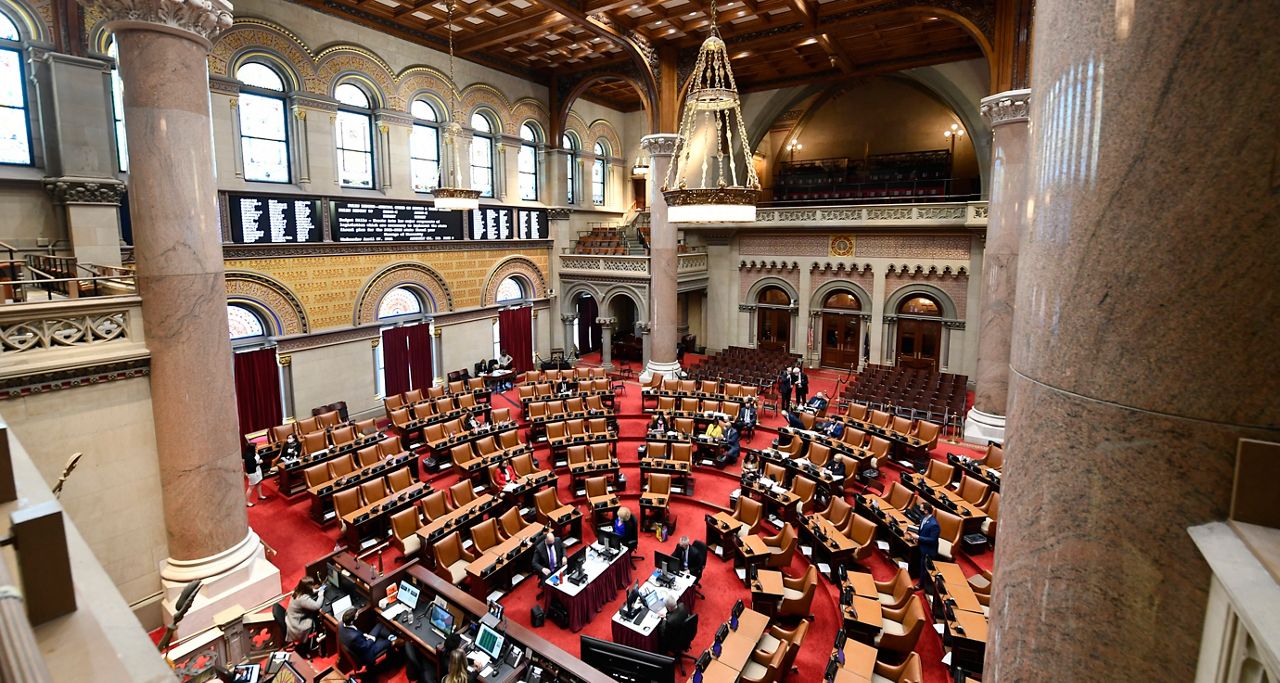A measure that would create a judicial discretion lever for when bail is being determined for serious criminal charges was introduced by a Democratic state lawmaker in the Assembly on Friday as the state budget talks hinge in part on making changes to a 2019 law that limited when cash bail is required in criminal cases.
The proposal, introduced by Assemblyman Ken Zebrowski, is backed by Democratic Assemblywoman Carrie Woerner. She announced in a statement on Saturday afternoon she would support the legislation as a matter of public safety.
"The role of judges is to look at the fact pattern of each individual case and to fairly and equitably apply the relevant law to the facts," she said. "This is the essence of judicial discretion and in the context of decisions on bail, pre-trial services or remand, we need to re-establish the role of the judges in making those determinations, specifically in cases where the action of an individual has put others in danger."
The measure was introduced as lawmakers and Gov. Kathy Hochul continue to discuss a state budget that has surpassed the April 1 deadline. Hochul is seeking changes to New York's bail law in order to limit the least restrictive standard for when judges determine bail for serious criminal charges.
Top Democratic leaders have not embraced the proposal from the governor. But in recent days, both Assembly Speaker Carl Heastie and Senate Majority Leader Andrea Stewart-Cousins have not ruled out a compromise that would clarify the law without undermining the initial intent of creating of more equitable criminal justice system.
Hochul and lawmakers have acknowledged the negotiations over the bail law are a key stumbling block to a broader agreement on a budget.
Lawmakers approved the bail law change in order to prevent low-income defendants facing criminal charges from languishing in jail while awaiting adjudication. But the law has become a focus of an ongoing debate over public safety in New York after a rise in crime that has coincided with the COVID pandemic.
Voters in New York have been critical of the law, and a Siena College poll in March found majorities of Democrats, Republicans and independents support adding a judicial discretion component.
Woerner said the proposal now in the Assembly would apply to felonies and misdemeanors not currently bail-eligible, but involve crimes in which "one person has harmed another" or created an unacceptable level of danger.
"This bill would allow a judge to evaluate the circumstances surrounding that specific crime and to set bail, if appropriate," she said. "In addition, the bill sets up a process where all bail decisions are tracked to help guard against discrimination."
Lawmakers last year agreed to expand circumstances in which bail could be considered.
Advocates who support the state's existing law have decried efforts to make further changes.
“All New Yorkers deserve to be safe, and we can achieve safety without weakening the modest protections in the bail law, which would only offer New Yorkers a false hope at best," said Jose Saldana, the executive director of the Release Aging People in Prison Campaign. 'We know that bail reform didn’t increase crime and that rolling it back for the third time will not improve community safety. Instead, making backwards changes to bail will fill our local jails with more Black, Brown, and poor people, subjecting them to inhumane conditions like those on Rikers Island."



